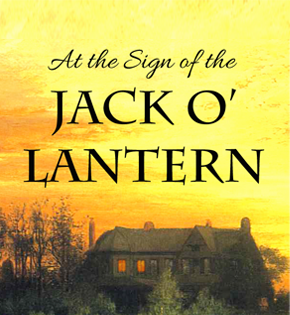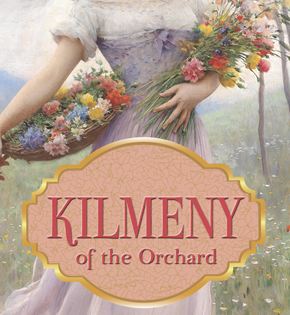The Magnificent Ambersons was published in 1918, and the great Orson Welles committed it to the big screen in 1942. Welles directed, produced, and wrote the screenplay. Like the novel, which won the Pulitzer Prize in 1919, the movie was a great success, and it regularly makes the list of the best movies ever made. Many reviewers say it is superior to Welles’ masterpiece, Citizen Kane. But the movie was surrounded by controversy. It was test screened and disliked by audiences, so studio executives demanded revisions and cuts. Welles complied initially, but did not make all of the adjustments that the studio wanted, so while he was out of the country, forty minutes of the film were cut and destroyed and the ending was changed to reflect a closer rendition of the novel.
Welles was devastated and considered it a hatchet job. I would love to see the destroyed footage and it is a terrible loss, but I have to admit I am glad that the original ending was incorporated for the finale. The touching finish is incredibly beautiful, on paper and on screen. The book is superior to the movie as it expounds on the themes of progress and the industrialization of the United States, a major theme and important to the development of Georgie’s character. The book also does a better job reflecting Georgie’s metamorphosis from a spoiled monster to a redeemed human being. But the movie is well worth watching. Joseph Cotton and Agnes Moorehead give brilliant performances, and Orson Welles is truly at his best.
The film opens with a long narration by Welles, much of it pulled word for word from the first chapter of the book. I have rarely seen voice over work so well done and it sets the tone for the entire picture. There is a discourse about the fashions and customs of the day, charmingly acted out by Joseph Cotton and Delores Coestello, while Welles narrates in his silky tones. It is a delightful way to tell the back story in an entertaining manner, immersing the viewer in bygone days and drawing you in without taking up too much time. The family dynamics of the Ambersons are captured with startling realism. As movie reviewer Paul Kael states, “Welles achieved some great sequences of family life--intense, harrowing squabbles … As the nervous, bitter hysterical-spinster aunt, Agnes Moorehead is uncannily powerful, in a hyper-realistic way. It's a classic performance."
On the contrary, the 2002 remake of the film was a tremendous disappointment. Johnathan Rhys Myers’ performance was awful, as was Jennifer Tilly’s. It pains me to say that, because I really enjoy both of them in other films, but their overacting and misplaced dramatics were revolting. Tim Holt in the original version was far from perfect as Georgie Amberson, but his performance was vastly superior to Myers’. Agnes Moorehead’s eccentric, fascinating portrayal of Aunt Fanny is butchered by Tilly, whose personification of the character is grotesque and, frankly, ludicrous. But the worst part of the 2002 remake are the incestuous undertones implied between Georgie and his mother, Isabel. This really infuriated me. Georgie Minafer is a spoiled rotten brat, but certainly not a pervert! Isabel’s worship of her son is confined to her desire to serve and adore. The suggestion that there is anything remotely sexual about their relationship is disgusting and gratuitous. Perhaps the screen writer or the director thought it would make it more avant-garde, but it simply made it trashy.
I highly recommend the book and the 1942 version of the film. It is obvious to me in every screen shot that Orson Welles loved this book, and he certainly does Tarkington’s novel justice, despite the studio’s interference.
POSTED BY: L.R. Blizzard
The Magnificent Ambersons by Booth Tarkington
Professionally edited and formatted for today's readers!
Get the Legacy Vintage Collection Enhanced eBook Edition for $1.99!



























